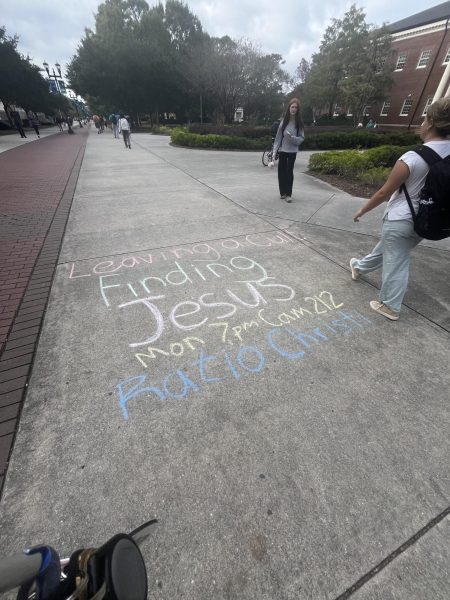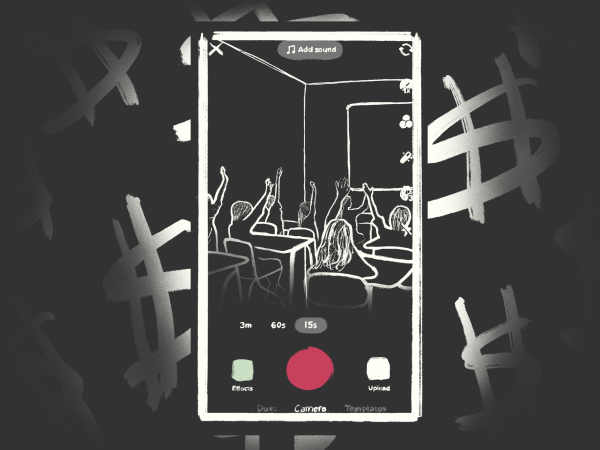The SheHawk: Why Campus Involvement Really Matters
We humans tend to wear words down, use them too much, fall into periodic routines. It is imperative we return to words that have lost their meaning in the chaos of our fast-paced lives and learn them all over again.
“Campus involvement,” for example, are two words we know and understand because of how much they’re stressed even before college students step foot onto their campuses.
We participate in clubs and meetings that strike our interest (and sometimes ones that don’t, but we attend anyway for the t-shirts and free food). We stick our neck out into the domain of social interaction and networking because college is a mecca for interesting and cool people (faculty and students alike) to gather and bond over the instability of Wilmington’s weather.
But we are missing something, something essential, when campus involvement (here are those words again) loses its meaning and becomes a duty for us to perform.
Let me introduce another worn-down word: Diversity. We know this one well. It has become a checkbox for organizations and businesses alike. It has danced its way into taglines, mottos, and memos. It has allowed for token representation, becoming watered down and devoid of its true meaning.
According to our modern culture, the meaning of diversity is something like variety, or a well-displayed platter of differences, or holding hands around the globe while singing together. It means cooperation, blended ideas.
But it doesn’t mean only that.
Diversity is life. Life is not told from one point of view – although sometimes it feels like it is – and that point of view is usually our own. Life is not a single, rotating routine, or the process of going to college, graduating college, getting a job, retiring eventually, and paving the way for our children to do the same in a never-ending cycle. Life is not colorless and bland. It is teeming with differences and variety. It consists of many different facets, intricacies, components, species, and subspecies entangling with other and depending on each other to truly thrive.
Humans are intricately different, complex, and vibrant. We are all a thread in the tapestry of life, but we are all still remarkably similar. College campuses reflect this as best as they can with the creation of countless clubs and groups for people to flock to. The intention behind creating clubs in the first place is to gather people together who are similar in some way. However, we usually belong to more than one because our identities intersect and we can belong to the French club, but also to ACE or a club sport.
Sometimes in our search for stability, especially in our beginning college years when we are trying to decide what path we best belong on, we forget how essential it is to stay connected. We like being surrounded by people who are similar to us in some way and without realizing it, we take the diversity out of our own lives. Campus involvement loses its beauty and intrigue, especially when we stay involved to improve our resumes instead of ourselves.
It is important to join clubs or attend pop-up meetings of clubs we otherwise would not consider integral to our identity. When we join groups or clubs that are different from us, we gain a better perspective of our community and of the vast world we live in. We do depend on each other, and we have much to learn from each other. Going to Feminist Alliance meetings or LGBTQ meetings for example, though we may not consider ourselves feminist or gay, not only make us better students but better citizens of the world. When we deviate from our violently spinning circles of life and try to touch shoulders with another, we will be surprised at how much we missed.
Diversity is not a buzzword. Diversity is life, connection, and friendship. It is listening and understanding that there is always something more to learn about each other and ourselves.












